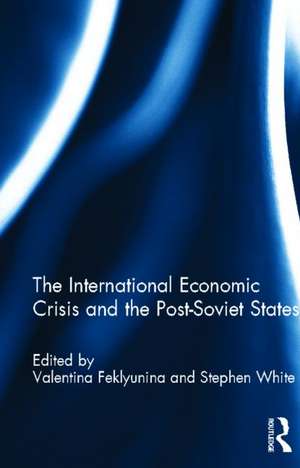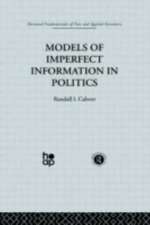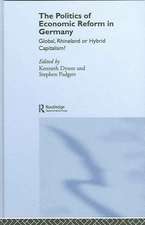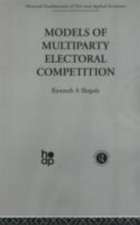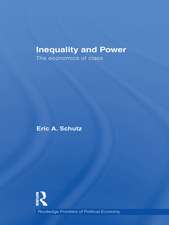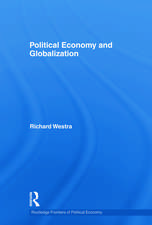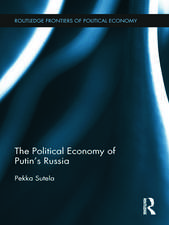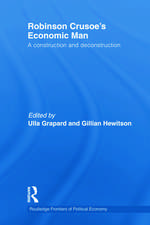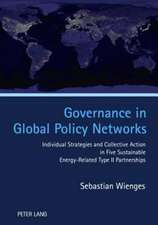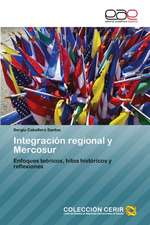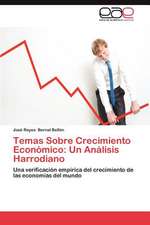The International Economic Crisis and the Post-Soviet States
Editat de Valentina Feklyunina, Stephen Whiteen Limba Engleză Hardback – 24 oct 2012
Drawing on a wide range of evidence, an international group of scholars address the impact of the international financial crisis in the post-Soviet states and the continuing implications of the crisis for these countries themselves and for the wider world.
This book was published as a special issue of the Journal of Communist Studies and Transition Politics, now known as East European Politics.
Preț: 1166.80 lei
Preț vechi: 1422.93 lei
-18% Nou
Puncte Express: 1750
Preț estimativ în valută:
223.27€ • 238.75$ • 186.16£
223.27€ • 238.75$ • 186.16£
Carte tipărită la comandă
Livrare economică 17 aprilie-01 mai
Preluare comenzi: 021 569.72.76
Specificații
ISBN-13: 9780415624107
ISBN-10: 041562410X
Pagini: 344
Dimensiuni: 138 x 216 x 21 mm
Greutate: 0.54 kg
Ediția:1
Editura: Taylor & Francis
Colecția Routledge
Locul publicării:Oxford, United Kingdom
ISBN-10: 041562410X
Pagini: 344
Dimensiuni: 138 x 216 x 21 mm
Greutate: 0.54 kg
Ediția:1
Editura: Taylor & Francis
Colecția Routledge
Locul publicării:Oxford, United Kingdom
Cuprins
Preface 1. Contrasting Responses to the International Economic Crisis of 2008–2010 in the 11 CIS Countries and in the 10 Post-Communist EU Member Countries 2. Micro-economic Responses to a Macro-economic Crisis: A Pan-European Perspective 3. Discourses of ‘Krizis’: Economic Crisis in Russia and Regime Legitimacy 4. The Tandem and the Crisis 5. How Did the Russian Population Respond to the Global Financial Crisis? 6. Russian Patrimonial Capitalism and the International Financial Crisis 7. Russia: Crisis, Exit and . . . Reform? 8. Democratization in Russia and the Global Financial Crisis 9. The International Economic Crisis and the 2010 Presidential Elections in Ukraine 10. Ukraine’s Foreign Policy Choices after the 2010 Presidential Election 11. The Great Slump of 2008–9 and Ukraine’s Integration with the European Union 12. Belarusian Foreign Policy in a Time of Crisis 13. The Impact of Economic Crisis: Russia, Belarus and Ukraine in Comparative Perspective 14. Russia and China: Against the Storm 15. The Global Recession and the Belarusian Economy: Revealing Cracks in the Model
Descriere
This book examines the impact of the international economic crisis that began in 2008 for Russia, Ukraine and Belarus, and of the implications of the crisis for these countries and the wider world.
Itwas published as a special issue of the Journal of Communist Studies and Transition Politics, now known as East European Politics.
